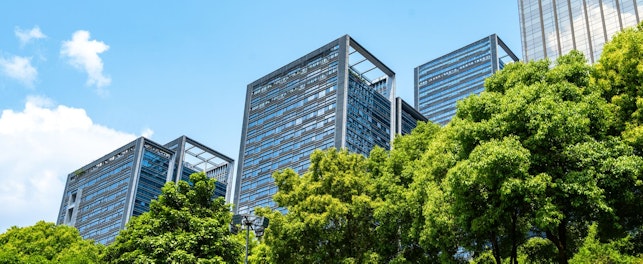Organizations worldwide must undergo a fundamental transformation towards a circular economy and/or bioeconomy by gradually replacing fossil raw materials with recycled or bio-based alternatives.
International Sustainability & Carbon Certification (ISCC) PLUS is one of the most popular sustainability certification systems to help you achieve this.
DEFINING CIRCULAR ECONOMY & BIOECONOMY
A circular economy shifts from a take-make-waste system to one where waste is eliminated, resources are circulated and nature is restored.
A circular economy provides the tools to tackle climate change and biodiversity loss while addressing vital social needs. It provides the power to increase prosperity, jobs and resilience, alongside cutting greenhouse gas (GHG) emissions, waste and pollution.
The European Commission (EC) defines a bioeconomy as “the production of renewable, biological resources and conservation of these resources and waste streams into value-added products, such as food, feed, bio-based products and bioenergy.
Its sectors and industries have strong innovation potential due to their use of a wide range of sciences, enabling industrial technologies, along with local and tacit knowledge”.
The circular economy and bioeconomy continue to grow. Challenges arise, but there is a lot of potential for new markets and greener companies committed to climate action.
WE URGENTLY NEED BETTER SOLUTIONS
Recycling plastic helps to solve the plastic waste problem. Bio-based plastics reduce the dependency on fossil fuels while recycled/bio-based plastics support the transition to a circular economy and bioeconomy.
INTRODUCING ISCC & ISCC PLUS
The ISCC is a multi-stakeholder initiative of over 180 members. It places a lot of emphasis on regular and regional stakeholder dialog.
There are six principles, a balanced set of ecological and social criteria for materials derived from agriculture:
- Principle 1: Protecting biodiverse and carbon-rich areas
- Principle 2: Good agricultural practices
- Principle 3: Safe working conditions
- Principle 4: Compliance with human, labor and land rights
- Principle 5: Compliance with laws and international treaties
- Principle 6: Good management practices and continuous improvement
ISCC PLUS is a globally recognized sustainability certification that helps companies demonstrate their ambitions to move towards a circular economy and bioeconomy.
The system can concentrate on every market and sector’s circular and bio-based raw materials that are not regulated as transportation fuels.
ISCC PLUS certification stands for:
- Traceability throughout the supply chain
- Transparent rules for mass balancing and physical segregation
- Clear attribution of certified materials through mass balancing
- Feedstock identity
- Well-defined and third-party verified claims
- No deforestation
- Protecting biodiversity and high-carbon stock areas
ISCC EU system documents apply to ISCC PLUS. The ISCC PLUS document describes the different requirements between it and ISCC EU. Additional documents outline the requirements for possible ISCC PLUS add-ons.
THE PLUS SIDE
ISCC PLUS can benefit organizations across the supply chain, from raw material collectors to brand owners.
The number of ISCC PLUS certificates continues to grow as more brands sign up. They are also communicating their efforts to external stakeholders.
Certification can help you to:
- Fulfill customer and supplier requirements
- Achieve and demonstrate good corporate governance (GCG)
- Contribute to the UN Sustainable Development Goals (SDGs)
- Increase market access, as certified recycled or bio-based products can facilitate access to new markets and displace established products
- Improve overall environmental, social and governance (ESG) performance, including better sustainability and performance ratings
- Increase a product’s appeal, as consumers increasingly prefer sustainably produced, certified products
There were over 80 million tons of ISCC-certified raw materials in 2020. This covered bio, such as corn and sugarcane; bio-circular, including tall oil and forest residues; and circular (technical) like mixed plastic waste and post-industrial CO2.
THE REGISTRATION & CERTIFICATION PROCESS
- Select a certification body (CB)
- Register as an ISCC system user
- CB conducts the audit
- CB issues the certificate
- ISCC internal review
- ISCC publishes certificate on its website
HOW WE CAN HELP
SGS was the first CB approved for sustainability certifications like ISCC PLUS.
We cooperate with more than 1,000 companies worldwide. Since 2010, we have issued over 8,700 ISCC certificates and conducted approximately 25,000 ISCC audits in 65 countries.
As a global leader in ISCC certifications, our worldwide network of offices and approved auditors can support you through the entire process.
About SGS
We are SGS – the world’s leading testing, inspection and certification company. We are recognized as the global benchmark for quality and integrity. Our 96,000 employees operate a network of 2,600 offices and laboratories, working together to enable a better, safer and more interconnected world.



